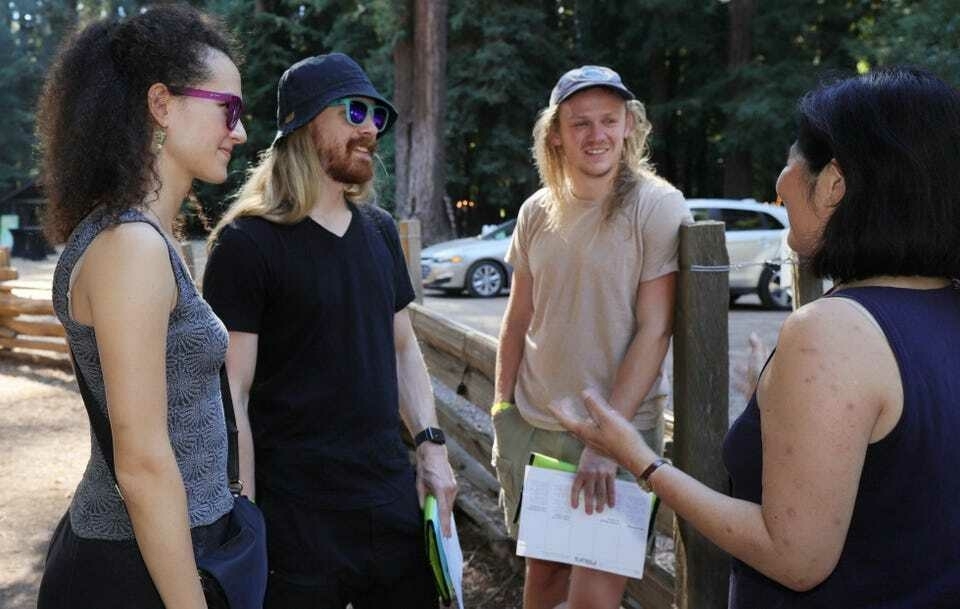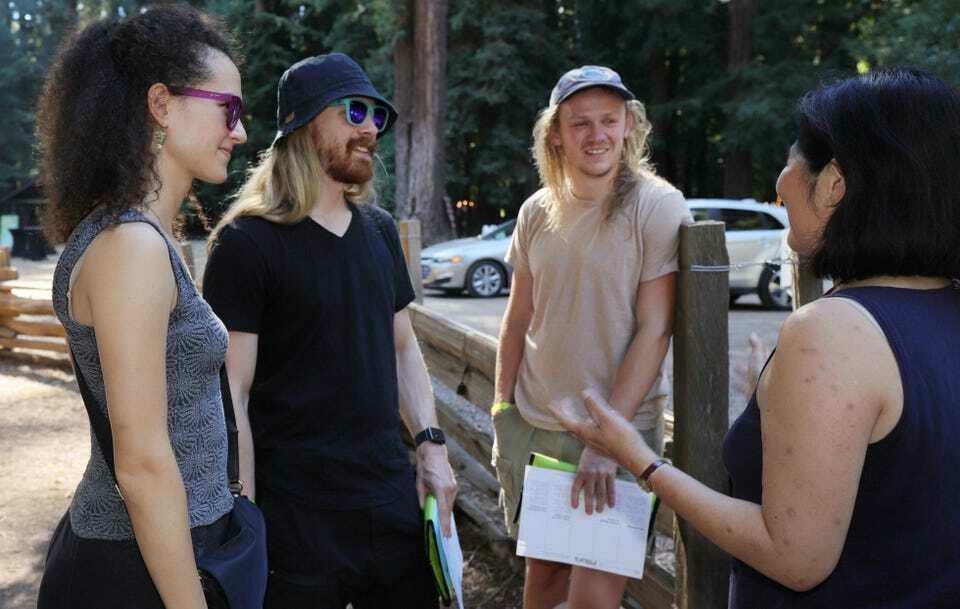- “Things that were considered worthless are redeemed” (Ira David Socol) — "Empathy plus Making must be what education right now is about. We are at both a point of learning crisis and a point of moral crisis. We see today what happens — in the US, in the UK, in Brasil — when empathy is lost — and it is a frightening sight. We see today what happens — in graduates from our schools who do not know how to navigate their world — when the learning in our schools is irrelevant in content and/or delivery."
- Voice assistants are going to make our work lives better—and noisier (Quartz) — "Active noise cancellation and AI-powered sound settings could help to tackle these issues head on (or ear on). As the AI in noise cancellation headphones becomes better and better, we’ll potentially be able to enhance additional layers of desirable audio, while blocking out sounds that distract. Audio will adapt contextually, and we’ll be empowered to fully manage and control our soundscapes.
- We Aren’t Here to Learn What We Already Know (LA Review of Books) — "A good question, in short, is an honest question, one that, like good theory, dances on the edge of what is knowable, what it is possible to speculate on, what is available to our immediate grasp of what we are reading, or what it is possible to say. A good question, that is, like good theory, might be quite unlovely to read, particularly in its earliest iterations. And sometimes it fails or has to be abandoned."
- The runner who makes elaborate artwork with his feet and a map (The Guardian) — "The tracking process is high-tech, but the whole thing starts with just a pen and paper. “When I was a kid everyone thought I’d be an artist when I grew up – I was always drawing things,” he said. He was a particular fan of the Etch-a-Sketch, which has something in common with his current work: both require creating images in an unbroken line."
- What I Do When it Feels Like My Work Isn’t Good Enough (James Clear) — "Release the desire to define yourself as good or bad. Release the attachment to any individual outcome. If you haven't reached a particular point yet, there is no need to judge yourself because of it. You can't make time go faster and you can't change the number of repetitions you have put in before today. The only thing you can control is the next repetition."
- Online porn and our kids: It’s time for an uncomfortable conversation (The Irish Times) — "Now when we talk about sex, we need to talk about porn, respect, consent, sexuality, body image and boundaries. We don’t need to terrify them into believing watching porn will ruin their lives, destroy their relationships and warp their libidos, maybe, but we do need to talk about it."
- Drones will fly for days with new photovoltaic engine (Tech Xplore) — "[T]his finding builds on work... published in 2011, which found that the key to boosting solar cell efficiency was not by absorbing more photons (light) but emitting them. By adding a highly reflective mirror on the back of a photovoltaic cell, they broke efficiency records at the time and have continued to do so with subsequent research.
- Twitter won’t ruin the world. But constraining democracy would (The Guardian) — "The problems of Twitter mobs and fake news are real. As are the issues raised by populism and anti-migrant hostility. But neither in technology nor in society will we solve any problem by beginning with the thought: “Oh no, we put power into the hands of people.” Retweeting won’t ruin the world. Constraining democracy may well do.
- The Encryption Debate Is Over - Dead At The Hands Of Facebook (Forbes) — "Facebook’s model entirely bypasses the encryption debate by globalizing the current practice of compromising devices by building those encryption bypasses directly into the communications clients themselves and deploying what amounts to machine-based wiretaps to billions of users at once."
- Living in surplus (Seth Godin) — "When you live in surplus, you can choose to produce because of generosity and wonder, not because you’re drowning."
Using WhatsApp is a (poor) choice that you make
People often ask me about my stance on Facebook products. They can understand that I don't use Facebook itself, but what about Instagram? And surely I use WhatsApp? Nope.
Given that I don't usually have a single place to point people who want to read about the problems with WhatsApp, I thought I'd create one.
WhatsApp is a messaging app that was acquired by Facebook for the eye-watering amount of $19 billion in 2014. Interestingly, a BuzzFeed News article from 2018 cites documents confidential documents from the time leading up to the acquisition that were acquired by the UK's Department for Culture, Media, and Sport. They show the threat WhatsApp posed to Facebook at the time.
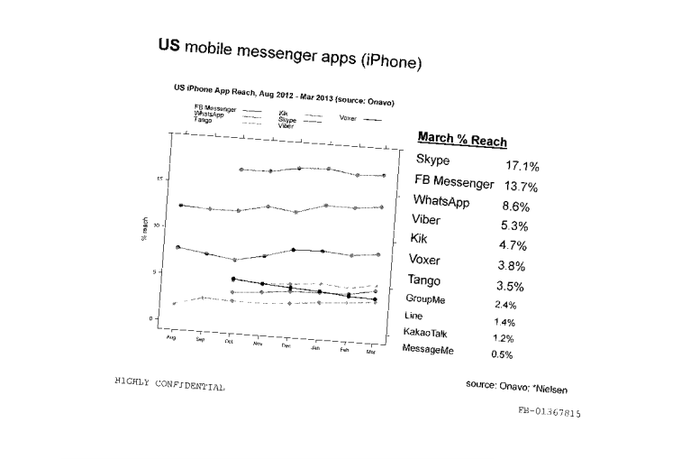
As you can see from the above chart, Facebook executives were shown in 2013 that WhatsApp (8.6% reach) was growing rapidly and posed a huge threat to Facebook Messenger (13.7% reach).
So Facebook bought WhatsApp. But what did they buy? If, as we're led to believe, WhatsApp is 'end-to-end encrypted' then Facebook don't have access to the messages of users. So what's so valuable?
Brian Acton, one of the founders of WhatsApp (and a man who got very rich through its sale) has gone on record saying that he feels like he sold his users' privacy to Facebook.
Facebook, Acton says, had decided to pursue two ways of making money from WhatsApp. First, by showing targeted ads in WhatsApp’s new Status feature, which Acton felt broke a social compact with its users. “Targeted advertising is what makes me unhappy,” he says. His motto at WhatsApp had been “No ads, no games, no gimmicks”—a direct contrast with a parent company that derived 98% of its revenue from advertising. Another motto had been “Take the time to get it right,” a stark contrast to “Move fast and break things.”
Facebook also wanted to sell businesses tools to chat with WhatsApp users. Once businesses were on board, Facebook hoped to sell them analytics tools, too. The challenge was WhatsApp’s watertight end-to-end encryption, which stopped both WhatsApp and Facebook from reading messages. While Facebook didn’t plan to break the encryption, Acton says, its managers did question and “probe” ways to offer businesses analytical insights on WhatsApp users in an encrypted environment.
Parmy Olson (Forbes)
The other way Facebook wanted to make money was to sell tools to businesses allowing them to chat with WhatsApp users. These tools would also give "analytical insights" on how users interacted with WhatsApp.
Facebook was allowed to acquire WhatsApp (and Instagram) despite fears around monopolistic practices. This was because they made a promise not to combine data from various platforms. But, guess what happened next?
In 2014, Facebook bought WhatsApp for $19b, and promised users that it wouldn't harvest their data and mix it with the surveillance troves it got from Facebook and Instagram. It lied. Years later, Facebook mixes data from all of its properties, mining it for data that ultimately helps advertisers, political campaigns and fraudsters find prospects for whatever they're peddling. Today, Facebook is in the process of acquiring Giphy, and while Giphy currently doesn’t track users when they embed GIFs in messages, Facebook could start doing that anytime.
Cory Doctorow (EFF)
So Facebook is harvesting metadata from its various platforms, tracking people around the web (even if they don't have an account), and buying up data about offline activities.
All of this creates a profile. So yes, because of end-ot-end encryption, Facebook might not know the exact details of your messages. But they know that you've started messaging a particular user account around midnight every night. They know that you've started interacting with a bunch of stuff around anxiety. They know how the people you message most tend to vote.
Do I have to connect the dots here? This is a company that sells targeted adverts, the kind of adverts that can influence the outcome of elections. Of course, Facebook will never admit that its platforms are the problem, it's always the responsibility of the user to be 'vigilant'.
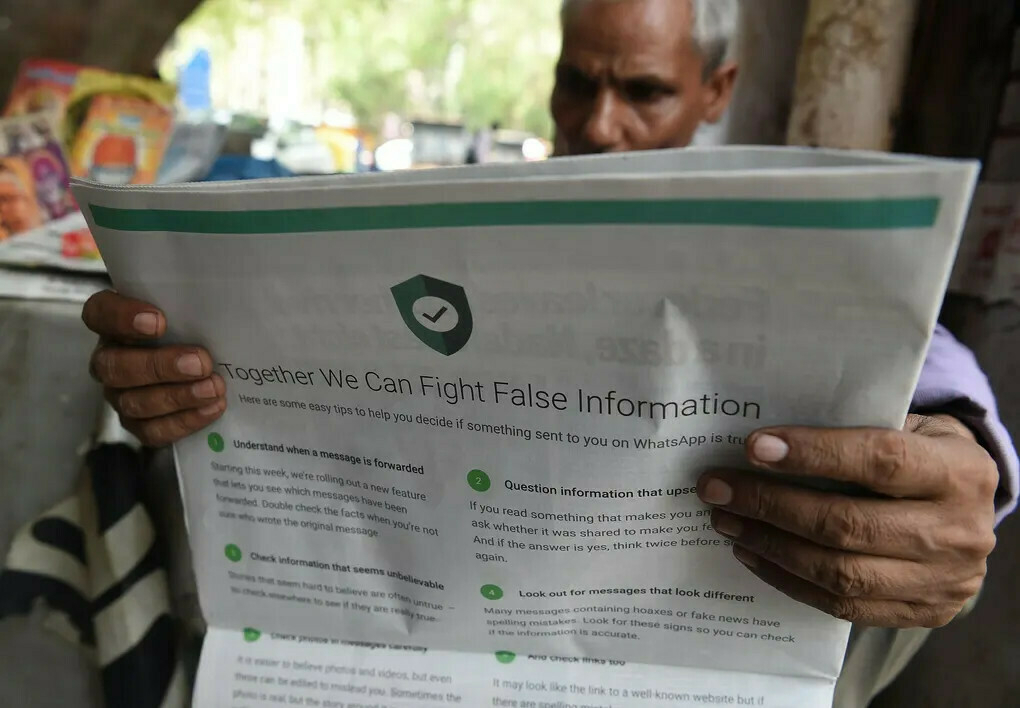
So you might think that you're just messaging your friend or colleague on a platform that 'everyone' uses. But your decision to go with the flow has consequences. It has implications for democracy. It has implications on creating a de facto monopoly for our digital information. And it has implications around the dissemination of false information.
The features that would later allow WhatsApp to become a conduit for conspiracy theory and political conflict were ones never integral to SMS, and have more in common with email: the creation of groups and the ability to forward messages. The ability to forward messages from one group to another – recently limited in response to Covid-19-related misinformation – makes for a potent informational weapon. Groups were initially limited in size to 100 people, but this was later increased to 256. That’s small enough to feel exclusive, but if 256 people forward a message on to another 256 people, 65,536 will have received it.
[...]
A communication medium that connects groups of up to 256 people, without any public visibility, operating via the phones in their pockets, is by its very nature, well-suited to supporting secrecy. Obviously not every group chat counts as a “conspiracy”. But it makes the question of how society coheres, who is associated with whom, into a matter of speculation – something that involves a trace of conspiracy theory. In that sense, WhatsApp is not just a channel for the circulation of conspiracy theories, but offers content for them as well. The medium is the message.
William Davies (The Guardian)
I cannot control the decisions others make, nor have I forced my opinions on my two children, who (despite my warnings) both use WhatsApp to message their friends. But, for me, the risk to myself and society of using WhatsApp is not one I'm happy with taking.
Just don't say I didn't warn you.
Header image by Rachit Tank
Friday facings
This week's links seem to have a theme about faces and looking at them through screens. I'm not sure what that says about either my network, or my interests, but there we are...
As ever, let me know what resonates with you, and if you have any thoughts on what's shared below!
The Age of Instagram Face
The human body is an unusual sort of Instagram subject: it can be adjusted, with the right kind of effort, to perform better and better over time. Art directors at magazines have long edited photos of celebrities to better match unrealistic beauty standards; now you can do that to pictures of yourself with just a few taps on your phone.
Jia Tolentino (The New Yorker)
People, especially women, but there's increasing pressure on young men too, are literally going to see plastic surgeons with 'Facetuned' versions of themselves. It's hard not to think that we're heading for a kind of dystopia when people want to look like cartoonish versions of themselves.
What Makes A Good Person?
What I learned as a child is that most people don’t even meet the responsibilities of their positions (husband, wife, teacher, boss, politicians, whatever.) A few do their duty, and I honor them for it, because it is rare. But to go beyond that and actually be a man of honor is unbelievably rare.
Ian Welsh
This question, as I've been talking with my therapist about, is one I ask myself all the time. Recently, I've settled on Marcus Aurelius' approach: "Waste no more time arguing about what a good man should be. Be one."
Boredom is but a window to a sunny day beyond the gloom
Boredom can be our way of telling ourselves that we are not spending our time as well as we could, that we should be doing something more enjoyable, more useful, or more fulfilling. From this point of view, boredom is an agent of change and progress, a driver of ambition, shepherding us out into larger, greener pastures.
Neel Burton (Aeon)
As I've discussed before, I'm not so sure about the fetishisation of 'boredom'. It's good to be creative and let the mind wander. But boredom? Nah. There's too much interesting stuff out there.

Resting Risk Face
Unlock your devices with a surgical mask that looks just like you.
I don't usually link to products in this roundup, but I'm not sure this is 100% serious. Good idea, though!
The world's biggest work-from-home experiment has been triggered by coronavirus
For some employees, like teachers who have conducted classes digitally for weeks, working from home can be a nightmare.
Jessie Yeung (CNN)
But in other sectors, this unexpected experiment has been so well received that employers are considering adopting it as a more permanent measure. For those who advocate more flexible working options, the past few weeks mark a possible step toward widespread -- and long-awaited -- reform.
Every cloud has a silver lining, I guess? Working from home is great, especially when you have a decent setup.
Setting Up Your Webcam, Lights, and Audio for Remote Work, Podcasting, Videos, and Streaming
Only you really know what level of clarity you want from each piece of your setup. Are you happy with what you have? Please, dear Lord, don't spend any money. This is intended to be a resource if you want more and don't know how to do it, not a stress or a judgment to anyone happy with their current setup
And while it's a lot of fun to have a really high-quality webcam for my remote work, would I have bought it if I didn't have a more intense need for high quality video for my YouTube stuff? Hell no. Get what you need, in your budget. This is just a resource.
This is a fantastic guide. I bought a great webcam when I saw it drop in price via CamelCamelCamel and bought a decent mic when I recorded the TIDE podcast wiht Dai. It really does make a difference.
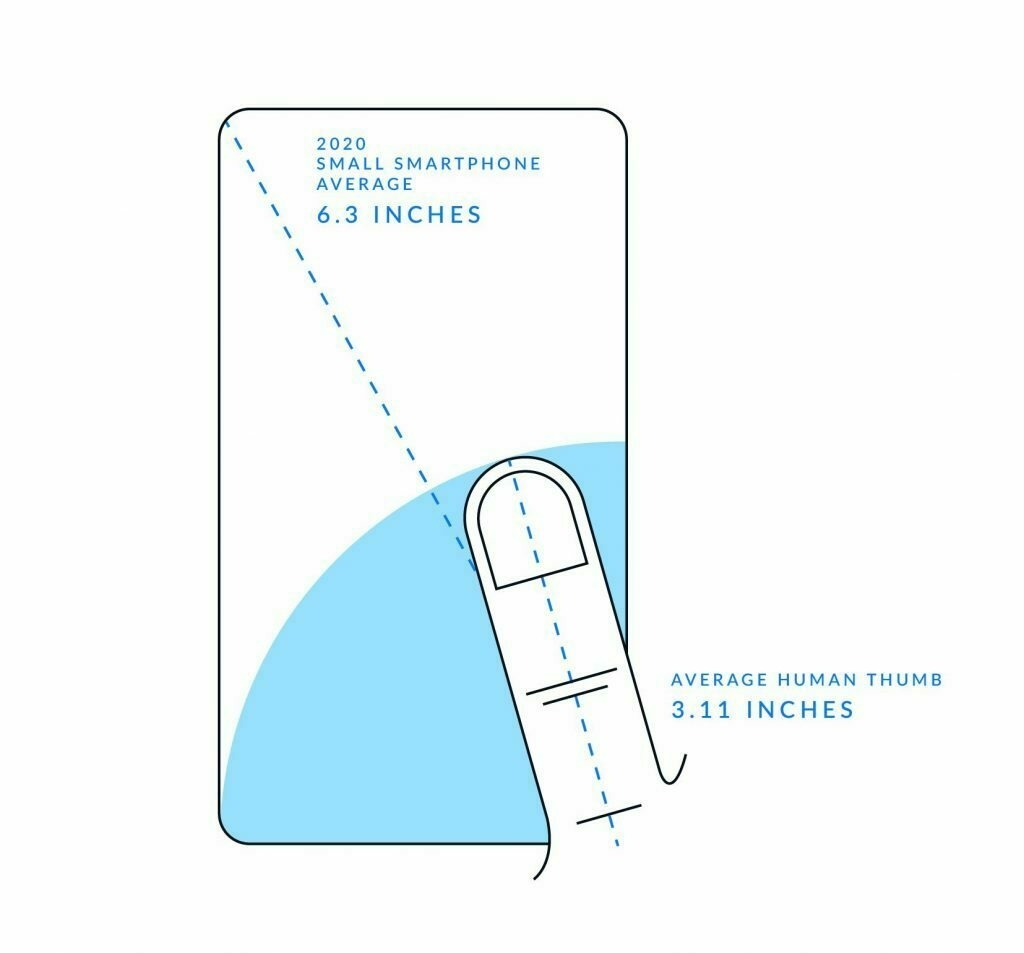
Large screen phones: a challenge for UX design (and human hands)
I know it might sound like I have more questions than answers, but it seems to me that we are missing out on a very basic solution for the screen size problem. Manufacturers did so much to increase the screen size, computational power and battery capacity whilst keeping phones thin, that switching the apps navigation to the bottom should have been the automatic response to this new paradigm.
Maria Grilo (Imaginary Cloud)
The struggle is real. I invested in a new phone this week (a OnePlus 7 Pro 5G) and, unlike the phone it replaced from 2017, it's definitely a hold-with-two-hands device.
Society Desperately Needs An Alternative Web
What has also transpired is a web of unbridled opportunism and exploitation, uncertainty and disparity. We see increasing pockets of silos and echo chambers fueled by anxiety, misplaced trust, and confirmation bias. As the mainstream consumer lays witness to these intentions, we notice a growing marginalization that propels more to unplug from these communities and applications to safeguard their mental health. However, the addiction technology has produced cannot be easily remedied. In the meantime, people continue to suffer.
Hessie Jones (Forbes)
Another call to re-decentralise the web, this time based on arguments about centralised services not being able to handle the scale of abuse and fraudulent activity.
UK Google users could lose EU GDPR data protections
It is understood that Google decided to move its British users out of Irish jurisdiction because it is unclear whether Britain will follow GDPR or adopt other rules that could affect the handling of user data.
If British Google users have their data kept in Ireland, it would be more difficult for British authorities to recover it in criminal investigations.
The recent Cloud Act in the US, however, is expected to make it easier for British authorities to obtain data from US companies. Britain and the US are also on track to negotiate a broader trade agreement.
Samuel Gibbs (The Guardian)
I'm sure this is a business decision as well, but I guess it makes sense given post-Brexit uncertainty about privacy legislation. It's a shame, though, and a little concerning.
Enjoy this? Sign up for the weekly roundup, become a supporter, or download Thought Shrapnel Vol.1: Personal Productivity!
Header image by Luc van Loon
Friday fizzles
I head off on holiday tomorrow! Before I go, check out these highlights from this week's reading and research:
Image from Dilbert. Shared to make the (hopefully self-evident) counterpoint that not everything of value has an economic value. There's more to life than accumulation.
